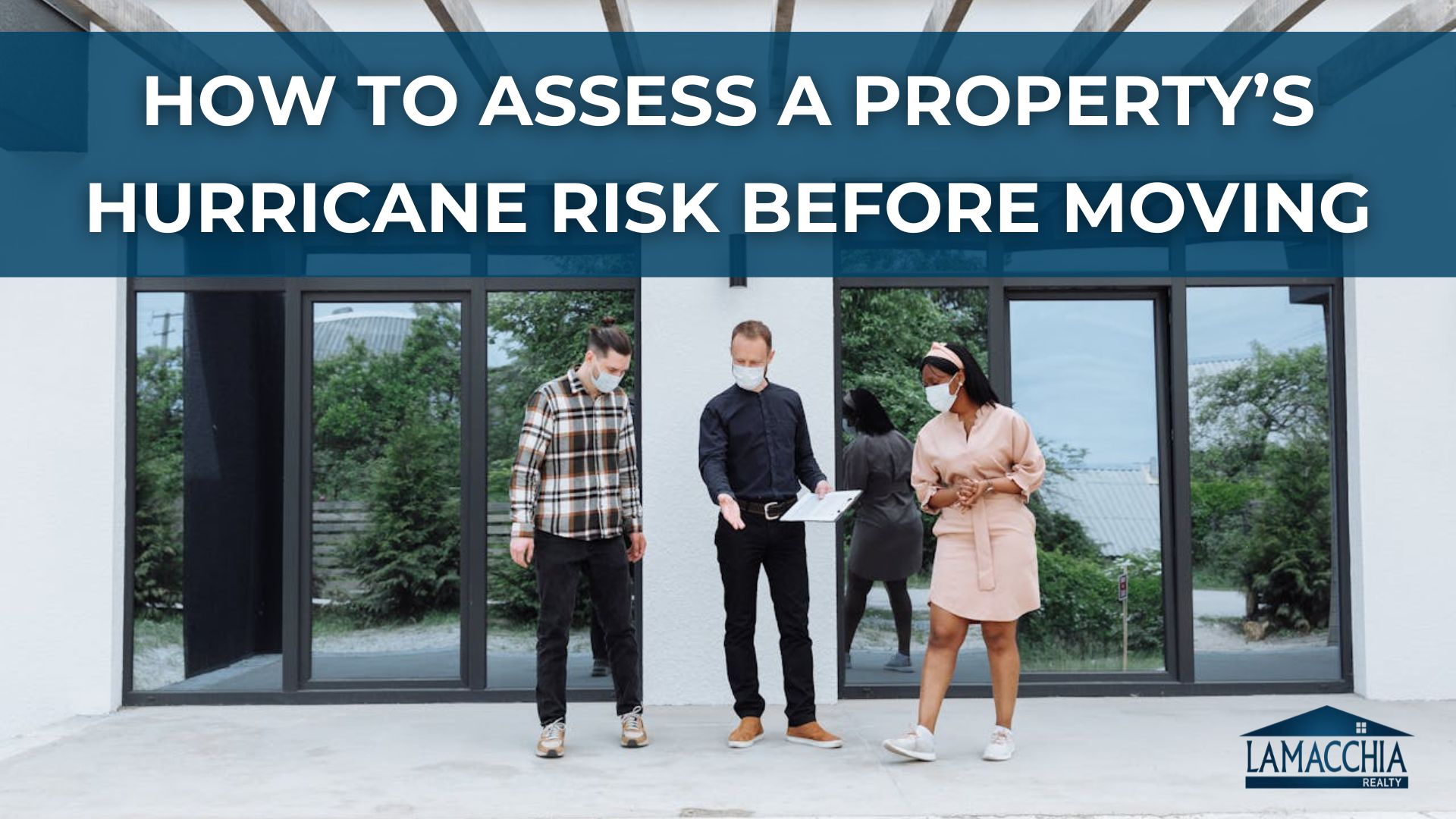
Moving to a new home is a significant decision, and understanding potential risks is essential to make an informed choice. For those considering a move to a hurricane-prone area, assessing a property’s hurricane risk is a key step in ensuring your safety and protecting your investment. You can make a smart and confident decision by evaluating the property’s location, construction features, and local resources.
Understanding Hurricane-Prone Areas
Hurricanes are most common in coastal states and regions, especially in the southeastern United States. When assessing a property, research the area’s historical hurricane activity. Coastal proximity, elevation, and local climate patterns can explain how frequently severe weather affects the location. Local government websites often have detailed maps and reports on flood zones, storm surge risks, and hurricane histories.
Evaluating Local Building Codes
Building codes in hurricane-prone areas are designed to minimize the damage caused by extreme winds and rain. Research whether the property complies with updated building codes, as these codes often dictate the quality and durability of construction materials. Wind-resistant roofing, impact-resistant windows, and reinforced doors are common features in homes built to withstand hurricanes. Homes built after significant hurricanes often incorporate these standards.
 Inspecting the Property’s Location
Inspecting the Property’s Location
The location of the property plays a crucial role in assessing hurricane risk. Properties in low-lying areas are more likely to experience flooding from storm surges or heavy rains. Check if the property lies within a flood zone or near a body of water. Additionally, consider the accessibility of evacuation routes and proximity to emergency shelters.
Reviewing Flood Insurance Requirements
Many areas prone to hurricanes require homeowners to carry flood insurance, especially if the property is in a designated flood zone. Before making a purchase, review the cost of flood insurance for the area. This expense can add up quickly, so factoring it into your budget is important. If the property is outside the flood zone, you may still want to consider optional flood insurance for peace of mind.
Ensuring a Seamless Transition
If you’re moving to a hurricane-prone area, preparation is key. Hiring interstate movers can help streamline your relocation, ensuring your belongings are transported safely and securely. For instance, if you’re moving from Maryland to Florida, experienced movers can help you plan your move efficiently and make sure your items are safe.
Assessing Structural Features of the Home
The structure of a home is critical in determining how well it can withstand hurricanes. Look for storm shutters, elevated foundations, and reinforced roofs. These additions can significantly reduce the risk of damage during a hurricane. If the property lacks these features, consult with a contractor to estimate the cost of upgrades.
Consulting Local Experts
Local real estate agents and home inspectors can provide valuable insights about a property’s hurricane risk. They often have access to detailed records about the property’s history, including past storm damage and repairs. Additionally, they can connect you with resources like architects and builders familiar with hurricane-resistant construction techniques.
 Exploring Community Resources and Emergency Plans
Exploring Community Resources and Emergency Plans
A property’s location within a community can also influence its hurricane risk. Evaluate the area’s emergency management resources, such as evacuation plans, local storm shelters, and response times. Communities with robust emergency services can often recover more quickly after severe weather events. Check if the area has a history of well-coordinated disaster response efforts.
Considering Landscaping and Drainage
The landscaping and drainage systems around the property can impact how well it weathers a hurricane. Poor drainage can lead to water pooling near homes, increasing the risk of flooding. Trees and large branches too close to the house may become hazards during high winds. Inspect these aspects and plan for necessary changes to improve the property’s resilience.
Checking for Nearby Moving and Storage Solutions
When moving to a hurricane-prone area, having access to reliable storage options can be a lifesaver. For instance, companies like Beltway Movers DMV offer secure and flexible solutions if you need temporary storage during your transition. Such services can be essential in safeguarding valuable items during severe weather events.
Reviewing Weather Alert Systems
Modern technology provides excellent tools to monitor and prepare for hurricanes. Check whether the area has reliable weather alert systems that provide real-time updates on storm conditions. This information can help you act quickly in emergencies. Additionally, some homes come equipped with smart weather-monitoring systems that integrate with local alerts.
Leveraging Renewable Energy to Enhance Hurricane Preparedness
Another innovative way to mitigate hurricane risks is by exploring renewable energy solutions. Homes equipped with solar panels and battery storage systems can maintain power during outages caused by storms, which is especially crucial in areas prone to prolonged disruptions. Solar systems with backup batteries allow homeowners to keep essential appliances and systems running even when the grid is down. Investing in renewable energy not only enhances your home’s resilience during hurricanes but also contributes to sustainable living in the long term. When assessing a property, inquire about existing renewable energy systems or the feasibility of installing them as part of your preparedness plan.
Conclusion: Property’s Hurricane Risk Assessed Properly
Assessing a property’s hurricane risk is vital to the decision-making process when moving to areas prone to severe weather. By understanding the location, reviewing structural features, and considering local resources, you can ensure your home is safe and secure. Whether moving from Maryland to Florida or exploring options in another hurricane-prone state, evaluating these risks will bring peace of mind and help you settle into your new home confidently.
